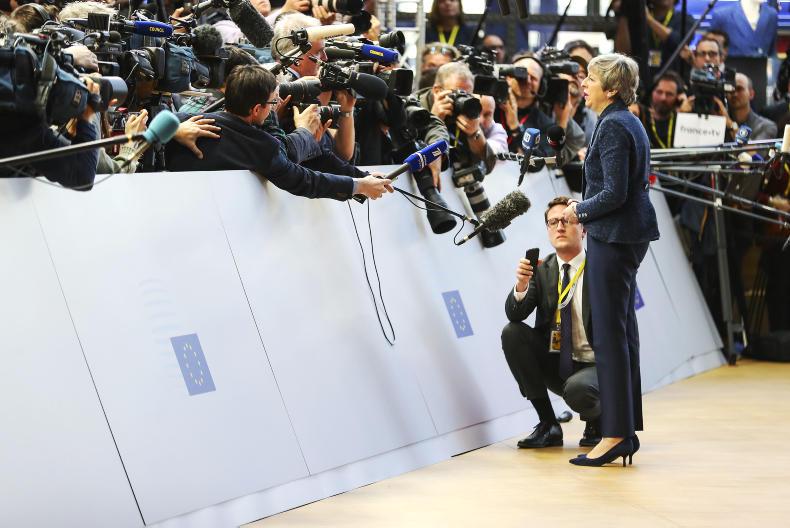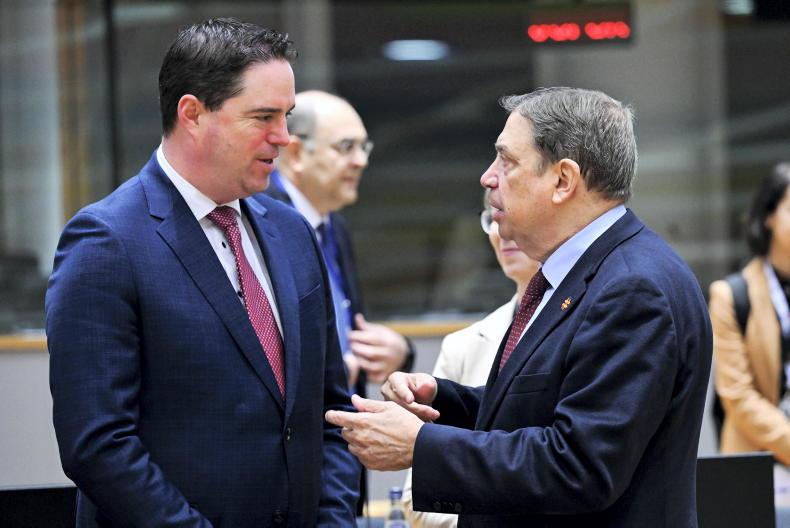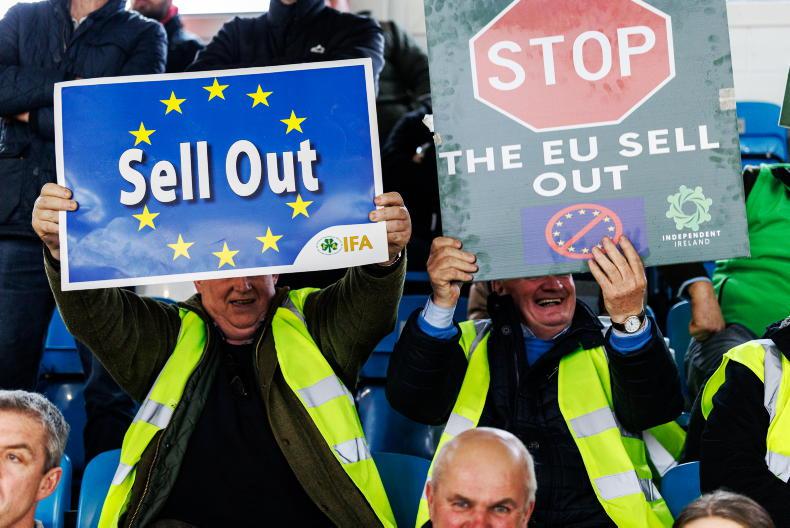The European Commission has said its contingency measures cannot mitigate the overall impact of a no-deal Brexit – it has been preparing for such an outcome since December 2017.
It has published 90 preparedness notices, three Commission Communications and has made 19 legislative proposals.
Two proposals are to be finalised by the European Parliament and EU Council.
Temporary proposals
“These proposals are temporary in nature, limited in scope and will be adopted unilaterally by the EU. They are not 'mini-deals' and have not been negotiated with the UK,” the Commission said in a statement on Monday.
“The EU has maintained – and will continue to maintain – a fully united position throughout its preparations, and during any possible no-deal period.”
In terms of agriculture, public intervention, private storage, crisis prevention and risk management measures are all in place already. Access to finance is possible in various formats, for example State-financed lending schemes.
Under EU State aid, instruments available to member states include:
Investment aid for agricultural holdings.Investment aid for companies in processing and marketing.Advisory services and training.Aid for closure of capacity for restructuring. Loans (communication on reference rates).Guarantees (guarantee notice).Rescue and restructuring aid for undertakings in difficulty.De minimis aid.Loans
In terms of finance, the EU can offer loans or guarantees to bridge acute liquidity gaps.
It can also give cash grants to farmers committing to freeze/reduce production. However, these options must be for a limited time, specific to a severely hit product sector and have a causal link to a market crisis.
Assistance from the EU can also be made available in the training of customs officials.
Other contingency measures
There are other contingency measures available.
The EU budget: in a no-deal scenario, the EU will honour its commitments and continue making payments in 2019 to UK beneficiaries for contracts signed and decisions made before 30 March 2019.PEACE programme: the continuation of the PEACE programme on the island of Ireland until the end of 2020. After 2020, the Commission has proposed for the next EU budget to continue cross-border support for peace and reconciliation in the border counties of Ireland and Northern Ireland.Road connectivity: continuation of safe basic road connectivity between the EU and the UK for a limited period of time, provided that the UK gives reciprocal treatment to EU companies and operators.Rail connectivity: ensures the validity of safety authorisations for parts of rail infrastructure for a strictly limited period of three months to allow long-term solutions in line with EU law to be put in place. This is, in particular, related to the Channel Tunnel.Ship inspections: this aims to ensure legal certainty and secure business continuity in shipping. Re-alignment of the North Sea – Mediterranean Core Network Corridor: this adds new maritime links between Ireland, France, Belgium and the Netherlands to the network, and adapting transport infrastructure for security and external border check purposes. Climate policy: this measure ensures that a no-deal scenario does not affect the functioning and the environmental integrity of the emissions trading system. To know more about how to prepare for a no-deal scenario, EU citizens can contact Europe Direct for any questions.
Call Freephone 00 800 678 91011 from anywhere in the EU, in any official EU language.
Read more
Brexit: border and how it is enforced comes into focus
Extension delivers for politics but not farming
UK will not source alternative beef and dairy overnight - Hogan
The European Commission has said its contingency measures cannot mitigate the overall impact of a no-deal Brexit – it has been preparing for such an outcome since December 2017.
It has published 90 preparedness notices, three Commission Communications and has made 19 legislative proposals.
Two proposals are to be finalised by the European Parliament and EU Council.
Temporary proposals
“These proposals are temporary in nature, limited in scope and will be adopted unilaterally by the EU. They are not 'mini-deals' and have not been negotiated with the UK,” the Commission said in a statement on Monday.
“The EU has maintained – and will continue to maintain – a fully united position throughout its preparations, and during any possible no-deal period.”
In terms of agriculture, public intervention, private storage, crisis prevention and risk management measures are all in place already. Access to finance is possible in various formats, for example State-financed lending schemes.
Under EU State aid, instruments available to member states include:
Investment aid for agricultural holdings.Investment aid for companies in processing and marketing.Advisory services and training.Aid for closure of capacity for restructuring. Loans (communication on reference rates).Guarantees (guarantee notice).Rescue and restructuring aid for undertakings in difficulty.De minimis aid.Loans
In terms of finance, the EU can offer loans or guarantees to bridge acute liquidity gaps.
It can also give cash grants to farmers committing to freeze/reduce production. However, these options must be for a limited time, specific to a severely hit product sector and have a causal link to a market crisis.
Assistance from the EU can also be made available in the training of customs officials.
Other contingency measures
There are other contingency measures available.
The EU budget: in a no-deal scenario, the EU will honour its commitments and continue making payments in 2019 to UK beneficiaries for contracts signed and decisions made before 30 March 2019.PEACE programme: the continuation of the PEACE programme on the island of Ireland until the end of 2020. After 2020, the Commission has proposed for the next EU budget to continue cross-border support for peace and reconciliation in the border counties of Ireland and Northern Ireland.Road connectivity: continuation of safe basic road connectivity between the EU and the UK for a limited period of time, provided that the UK gives reciprocal treatment to EU companies and operators.Rail connectivity: ensures the validity of safety authorisations for parts of rail infrastructure for a strictly limited period of three months to allow long-term solutions in line with EU law to be put in place. This is, in particular, related to the Channel Tunnel.Ship inspections: this aims to ensure legal certainty and secure business continuity in shipping. Re-alignment of the North Sea – Mediterranean Core Network Corridor: this adds new maritime links between Ireland, France, Belgium and the Netherlands to the network, and adapting transport infrastructure for security and external border check purposes. Climate policy: this measure ensures that a no-deal scenario does not affect the functioning and the environmental integrity of the emissions trading system. To know more about how to prepare for a no-deal scenario, EU citizens can contact Europe Direct for any questions.
Call Freephone 00 800 678 91011 from anywhere in the EU, in any official EU language.
Read more
Brexit: border and how it is enforced comes into focus
Extension delivers for politics but not farming
UK will not source alternative beef and dairy overnight - Hogan









SHARING OPTIONS